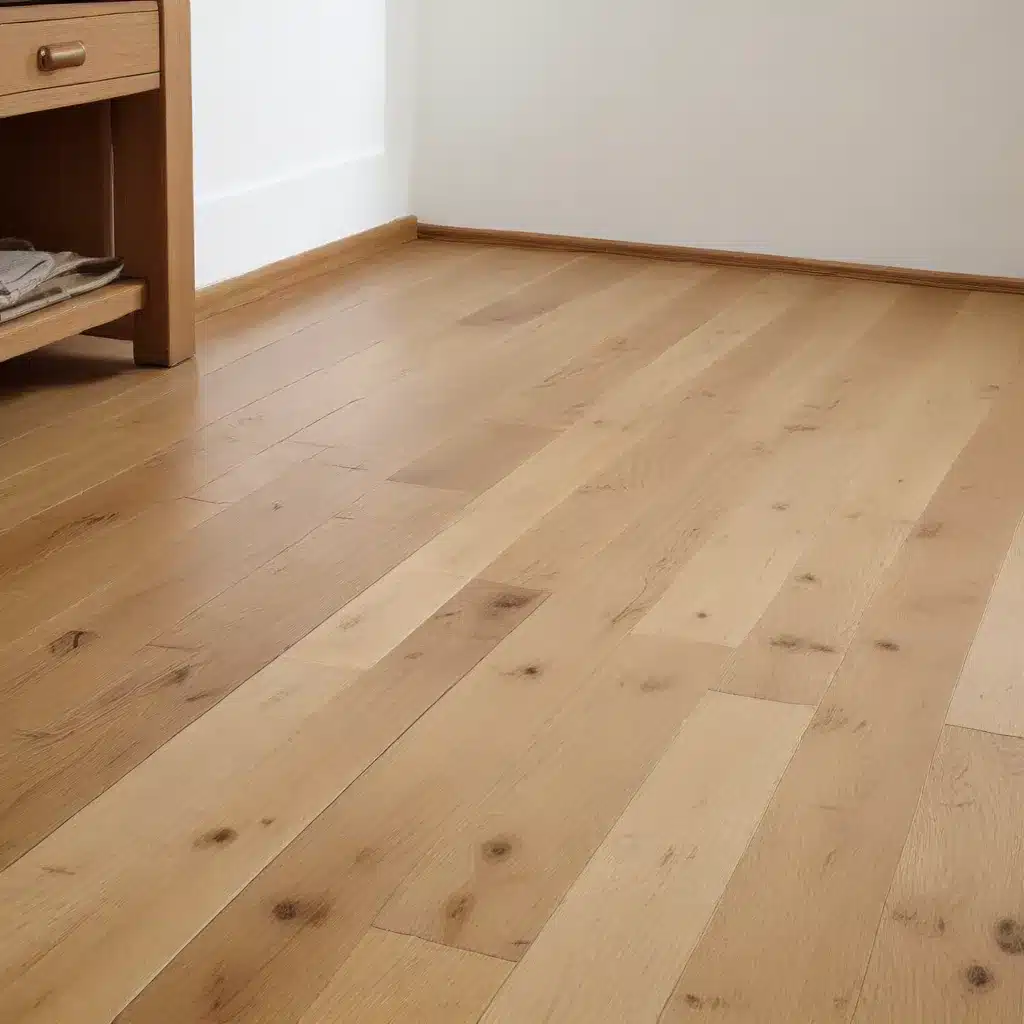
Understanding Oak Flooring Behavior
Oak is a highly desirable and durable hardwood flooring option, renowned for its timeless beauty, natural character, and exceptional strength. However, as a hygroscopic material, oak is susceptible to dimensional changes in response to fluctuations in ambient temperature and relative humidity (RH). Proper installation, maintenance, and environmental controls are crucial to ensuring the long-term performance and appearance of oak floors, especially when paired with underfloor heating systems.
Acclimating Oak Flooring
Before installation, oak flooring must be allowed to acclimate to the target environment. This process allows the wood to achieve an equilibrium moisture content (EMC) that matches the expected in-use conditions. Failure to properly acclimate can result in extensive shrinkage, gaps, or warping as the wood reacts to the installation environment. Allowing the oak to sit in the space for at least 7-10 days prior to installation is recommended, with regular moisture content monitoring to ensure it reaches the manufacturer’s specified range.
Understanding Seasonal Wood Movement
Oak floors will naturally expand and contract with changes in humidity. During the drier winter months, the wood loses moisture and shrinks, creating small gaps between boards. Conversely, in the more humid summer months, the wood absorbs moisture and expands, potentially causing the boards to become tightly compressed. This seasonal wood movement is a normal, expected behavior and should not be mistaken for a defect.
To minimize the visual impact of these seasonal changes, it’s important to install oak with adequate expansion gaps around the perimeter and at transitions. Larger rooms may also require strategically placed expansion joints to allow the floor to move freely. Maintaining consistent indoor humidity levels, ideally between 30-50% RH, can further help to reduce noticeable seasonal changes.
Combating Moisture-Related Issues
Excessive moisture, whether from above or below, is the primary enemy of oak flooring. Leaks, spills, high humidity, or moisture in the subfloor can all lead to problems like cupping, crowning, and buckling. Addressing the source of moisture is crucial before any remediation or refinishing work is undertaken.
If moisture is detected, use a wood moisture meter to assess the extent of the issue. Drying out the affected area, repairing any leaks, and ensuring adequate ventilation are essential first steps. In some cases, replacing damaged boards may be necessary. Consult a professional flooring contractor or inspector if you are unsure how to proceed.
Maintaining Oak Floors with Underfloor Heating
Integrating oak floors with an underfloor heating system introduces an additional layer of complexity to the maintenance and care routine. The constant, low-level heat can exacerbate seasonal wood movement and create unique challenges.
Acclimating Oak for Underfloor Heating
When installing oak flooring over an underfloor heating system, the acclimation process is even more critical. The wood must be allowed to adapt to the target temperature and humidity levels that will be maintained once the heating system is operational. This may require a longer acclimation period, up to 2-3 weeks, to ensure the wood reaches a stable EMC.
Managing Humidity and Temperature
Maintaining consistent indoor temperature and relative humidity is essential for oak floors with underfloor heating. Aim to keep the space between 68-77°F and 30-50% RH year-round. Avoid dramatic temperature or humidity fluctuations, as these can cause the wood to expand, contract, and potentially develop issues like cupping or cracking.
Consider installing a dehumidifier or humidifier to help regulate the ambient conditions, especially during the drier winter months. Closely monitor the space and make adjustments as needed to maintain the ideal environment.
Underfloor Heating Operation and Maintenance
When using underfloor heating with oak floors, it’s crucial to follow the manufacturer’s guidelines for system operation and maintenance. Gradually increase the heating output at the start of the season, allowing the floor to adapt slowly. Sudden spikes in temperature can shock the wood and lead to problems.
Regularly clean and service the underfloor heating system to ensure it is functioning properly. Check for any signs of leaks or malfunctions that could introduce excess moisture to the subfloor and flooring above.
Refinishing Oak Floors with Underfloor Heating
Over time, oak floors with underfloor heating may require refinishing to restore their appearance and protective finish. When sanding and refinishing, take care not to remove too much of the wood’s surface, as this can expose the floor to increased shrinkage and movement. Work with a professional flooring contractor who has experience with refinishing over underfloor heating systems.
Sustainable Oak Flooring Solutions
Oak is a naturally durable and renewable resource, making it an excellent choice for eco-conscious homeowners. Incorporating sustainable practices throughout the oak flooring lifecycle can further enhance its environmental benefits.
Responsible Sourcing and Production
When selecting your oak flooring, look for products that come from responsibly managed forests, with certifications like FSC (Forest Stewardship Council) or PEFC (Programme for the Endorsement of Forest Certification). These standards ensure the wood is harvested ethically and replanted to maintain forest health.
Additionally, consider the manufacturing process. Opt for oak flooring produced using renewable energy, low-emission techniques, and minimal waste to minimize the environmental impact.
Extending the Lifespan of Oak Floors
Proper maintenance and care are key to prolonging the lifespan of oak floors. Regular cleaning, prompt repairs, and strategic refinishing can ensure your floors remain in excellent condition for decades. Avoid harsh chemicals and opt for eco-friendly wood cleaners and finishes to protect both the environment and the integrity of the oak.
When the time comes for replacement, explore the possibility of reclaiming or repurposing the old oak boards. Many flooring companies offer recycling or upcycling programs to give new life to retired oak floors.
Conclusion
Oak flooring is a timeless, durable, and sustainable choice that can seamlessly integrate with underfloor heating systems. By understanding the unique properties of oak, implementing proper installation and maintenance practices, and embracing eco-friendly solutions, you can enjoy the beauty and performance of oak floors for years to come. For more information on selecting, installing, and caring for your oak floors, visit https://www.oakfloorsonline.co.uk/.


